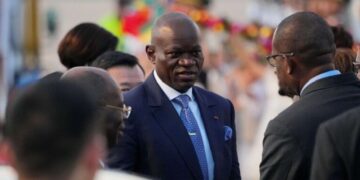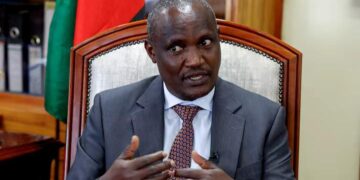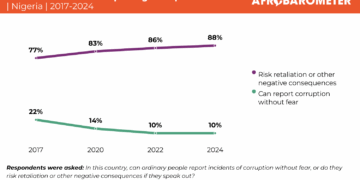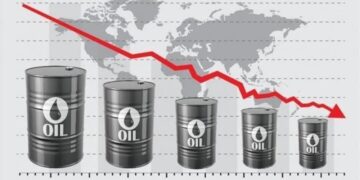By John Ikani
German Chancellor Olaf Scholz has expressed his country’s committment to investing in Nigeria’s gas and critical minerals sector.
Sholz’s who embarked on a two-day visit to Nigeria highlighted the importance of broadening trade horizons and enhancing economic partnerships in this energy-abundant region.
This trip marked Chancellor Scholz’s third visit to Africa in two years, underscoring the growing significance of energy-rich regions as viable alternatives to Russian energy sources, especially amidst ongoing conflicts in the Middle East and other regions.
Nigeria, known as Africa’s top oil producer, plays a pivotal role in Germany’s trade relations, ranking as its second-largest trading partner in sub-Saharan Africa.
The annual trade volume between Germany and Nigeria stands at an estimated $3 billion (£2.4 billion).
In his discussions with President Bola Ahmed Tinubu in the Nigerian capital, Abuja, Chancellor Scholz attested said “There are a lot of chances, not just from gas and oil… but for better using the capacities of your country, but also for going into investments for the future, which is about hydrogen.”
Chancellor Scholz’s also used the occassion of the visit to underscored his commitment to collaborate with Nigeria in addressing the challenge of illegal migration from West Africa to Europe.
rResponding, President Tinubu sought Germany’s support not only in addressing security concerns but also in revitalizing Nigeria’s economy, stressing the depth of their shared objectives.
What you should know
Nigeria has the ninth largest proven natural gas reserves in the world, with an estimated 202 trillion cubic feet (tcf). However, the country only produces about 8 billion standard cubic feet per day (bscf) of gas, which is less than 1% of its reserves.
This means that Nigeria’s natural gas resources are significantly under utilized.
There are a number of factors that have contributed to this underutilization, including:
• Lack of investment in gas infrastructure: Nigeria’s gas pipeline network is underdeveloped, making it difficult and expensive to transport gas to consumers.
• Low gas prices: Gas prices in Nigeria have historically been lower than international prices, making it less profitable for companies to invest in gas production and infrastructure.
• Gas flaring: Nigeria flares about 15% of its natural gas production, which is a major waste of resources and pollutes the environment.
In recent years, the Nigerian government has taken some steps to increase gas utilization, including:
• Developing a national gas master plan: The gas master plan aims to increase gas production and consumption in Nigeria, and to develop new gas infrastructure.
• Promoting gas-to-power projects: The government is offering incentives to companies that invest in gas-to-power projects, which will help to reduce Nigeria’s reliance on imported fuel and improve energy security.
• Encouraging the use of gas for transportation: The government is working to promote the use of gas-powered vehicles and buses, which will help to reduce air pollution and greenhouse gas emissions.
There are also a number of ongoing projects to develop Nigeria’s gas resources and infrastructure.
For example, the Nigeria LNG Limited (NLNG) is expanding its LNG production capacity, and the West African Gas Pipeline (WAGP) is being extended to connect Nigeria with other West African countries.
Other specific examples include:
• The Ajaokuta-Kaduna-Kano (AKK) gas pipeline: This pipeline is being constructed to transport gas from the Niger Delta to the north of Nigeria, where it can be used for power generation, fertilizer production, and other industrial purposes.
• The Bonny Island LNG expansion project: This project will increase NLNG’s LNG production capacity by 35%.
• The Egina deepwater gas field: This field is expected to produce about 250 million standard cubic feet per day of gas when it comes online in 2023.
These projects are expected to help to increase gas utilization in Nigeria and to create jobs and economic opportunities.
Overall, there is a growing recognition in Nigeria that gas is a vital resource that can be used to improve the country’s economy and environment.
The government and private sector are working together to develop Nigeria’s gas resources and infrastructure, and to increase gas utilization in the country.


































